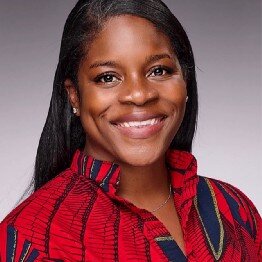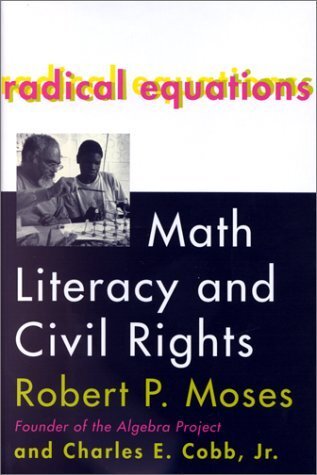.jpeg)
Osarugue "Michelle" Odemwingie, CEO
As we begin the 2021-22 school year, I’m inspired by knowing the work we do together as educators changes students’ lives. Recently, I’ve been reflecting on the work of Bob Moses, late teacher and civil rights activist, who recognized math education as a tool for changing the outcomes for our Black and historically marginalized students.
I first learned of Bob Moses in a pile of library books. It was the summer before my first year of teaching and I was frantically preparing for 8th-grade Algebra, a subject I neither loved nor was an expert in. But I was determined to be great. I had relocated myself from the Bay Area to our nation’s capital with a desire to teach in the heart of where the fight for education justice was happening. Moses’ text, Radical Equations, which mysteriously found its way into my bag of textbooks alongside a copy of Algebra for Dummies, was a compelling account of what it looks like to teach math as both content and greater knowledge, capable of changing lives. By a stroke of luck, I found myself lost in his reflections and account of the Algebra Project, and I vowed to model myself as a teacher who saw math instruction as a form of protest and liberation for Black and historically marginalized students.
As a middle school math teacher, I committed to thinking about math instruction not as a tool to build the world's next Google engineers but as an essential tool for students who would engineer the social change we needed for the future. I leveraged the spirit behind Moses’ work to teach an elective to my middle-schoolers called Math for Social Change where we could apply concepts like proportions and ratios to critical issues like gerrymandering and the number of liquor stores vs. restaurants on our side of the Anacostia River.

Published by Beacon Press, 2001
Moses believed that both the right to vote and math literacy are powerful organizing tools — tools for political access and for greater opportunities and life outcomes. His life’s work helped connect the two in the minds of organizers and his students. Yet the inequities Moses saw during the civil rights era continue to play out every day in students’ learning environments. Voter suppression is still a national issue. Lack of math literacy is still pervasive today. We must continue the work.
Bob Moses made me think about how to advance equity in my work before it was popular. He anchored me in the reality that good teaching is change work and an act of activism. And he helped me put my roots in instructional practices that reflect and respond to the communities I served. Later, these lessons from a role model and mentor I never met inspired me to move to a mission-aligned organization.
I have served in a number of roles here at Achievement Network, from coach to Chief of Staff, and now as the CEO. I have taken what I’ve learned from Bob Moses into each of these roles, and I’ve seen his teachings reflected back at me through my colleagues and in ANet’s foundations. Since our beginnings, Achievement Network has asked how to ensure students are taught well. I see the spirit of Moses’ work showing up in the conversations our ANet coaches are having with school leadership teams about how inequities show up in classrooms, including in the mindsets, biases, and challenges coming up when they teach. The classrooms we observe alongside our partners help us create systems for student agency. Bob Moses believed strongly in student-centered teaching, engaging in a way that focused on decentering ourselves and recentering the community and students; this same conviction is why we believe in a partnership, not a program, at ANet. There are no simple solutions to great teaching, just co-construction of paths forward.
We all have the opportunity to stand on the shoulders of those who blazed a trail before us as we nurture the futures of those in front of us. In the wake of his recent passing, I hope we all continue the vision of Bob Moses by teaching for students who are systematically underserved.
You can learn more about Robert “Bob” Moses and the Algebra Project here.
